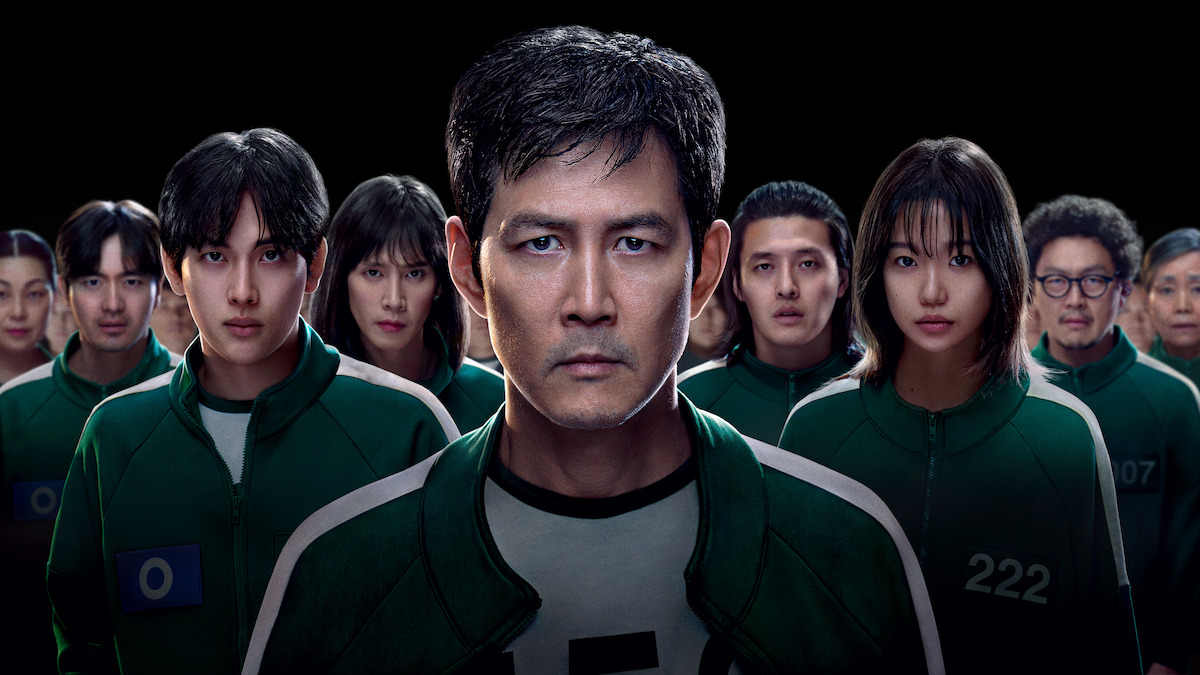In the intense world of the fictional Netflix show “Squid Game,” the clear divide between the rich and the poor sets the stage for a story that goes beyond just entertainment. The South Korean series explores important themes of class division, shining a light on the allegory between the contrasting of capitalism and democracy. As the desperate players face dangerous challenges, the show reveals the differences between those who are corrupt and those who are innocent, showcasing the tough moral choices people make when their lives are on the line. Additionally, the series shows how extreme situations can create strong connections among people, but can also lead to betrayal. Through its powerful storytelling and deep themes, Squid Game encourages viewers to think about the social structures that influence lives and the lengths people will go to when pushed to the edge.
Squid Games’ dystopian feel adds emphasis to its important themes of poverty and the division between the upper and lower class. The dystopian elements make it even more valuable to the readers as they draw emphasis to important themes that are prevalent in the world. When players enter these games, the illusion of choice is displayed; the participants believe they have a choice to play these games, but the reality is that they are trapped into a system that offers no real escape. That system is controlled by the elites, and they manipulate it to their entertainment and liking. Peter Tran, a freshman, comments on the idea, noting the emphasis.
“[The players] think they have a choice […] but in reality, they have this false deception that they’re in control, and that’s what the elites in the show, like, wanted them to think. They wanted the contestants to feel like they had power, even if it was a little bit,” said Tran.
Squid games present the allegory of Capitalism vs Democracy within the choices the characters make. In Squid Games, players often make pressured, risky and even fatal decisions based on the basis of individual success when a taken collective action has a better chance at saving them. Often, challenges presented in the form of ‘games’ are meant to divide the players and make them go against one another, introducing a false dilemma made between prioritizing only yourself and the life of your group or die. The breaking of this false dilemma through the use of teamwork prompts watchers to question their moral compass and ethical principles, urging to retain empathy and care even in the most dire situations. Zaid Melerk, a sophomore, draws the conclusion that lots of fatalities could’ve been prevented if they had just thought of everyone as a single unit.
“The thing is, each one of them wanted to survive, and with their lives on the line, that blinded them from the fact that they’d work better as a team than alone,” said Melerk.
Squid Games also showcase the clash of strong contrasts between not only the rich and the poor, but the corrupt and the innocent. In these cruel games the players play in, usually the corrupt thrive in individual success, making sacrifices and cutting off players for their own life. The innocent and vulnerable cannot co-exist with the corrupt for survival, and those who survive aren’t absolent to corruption. For example, one of the main characters, Sae Byeok, vulnerable due to injury and blood loss, was ultimately murdered by another player, Sang Woo, a cold calculative player that possesses the ability to act upon stone logic and strategy rather than emotions and morals. Zayne Ngyuen, a freshman, commented on the contrasts between corruption and innocence in the games.
“Squid Games displays a variety of different character archetypes, and under the pressure [of the games], those bloom and take form, some being more ‘innocent’ or ‘corrupt’ than others, […] and typically those who were innocent, perished.” said Nguyen
Relationships among players develop throughout the story, illustrating themes of trust and betrayal. The bonds formed reflect the complexities of human relationships in dire situations, often tested, exploring the darker sides of human nature in relationship to other people such as greed, betrayal, and the instinct to survive no matter what it takes. Ronen Vu, a sophomore, commented on the general character dynamics between characters.
“The games basically tested all of their relationships everytime: were they going together as a team or were they going to selfishly part themselves away on their own,.” said Vu.

